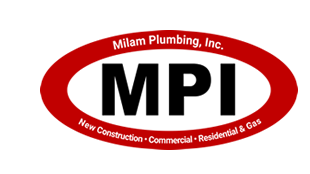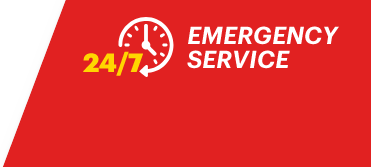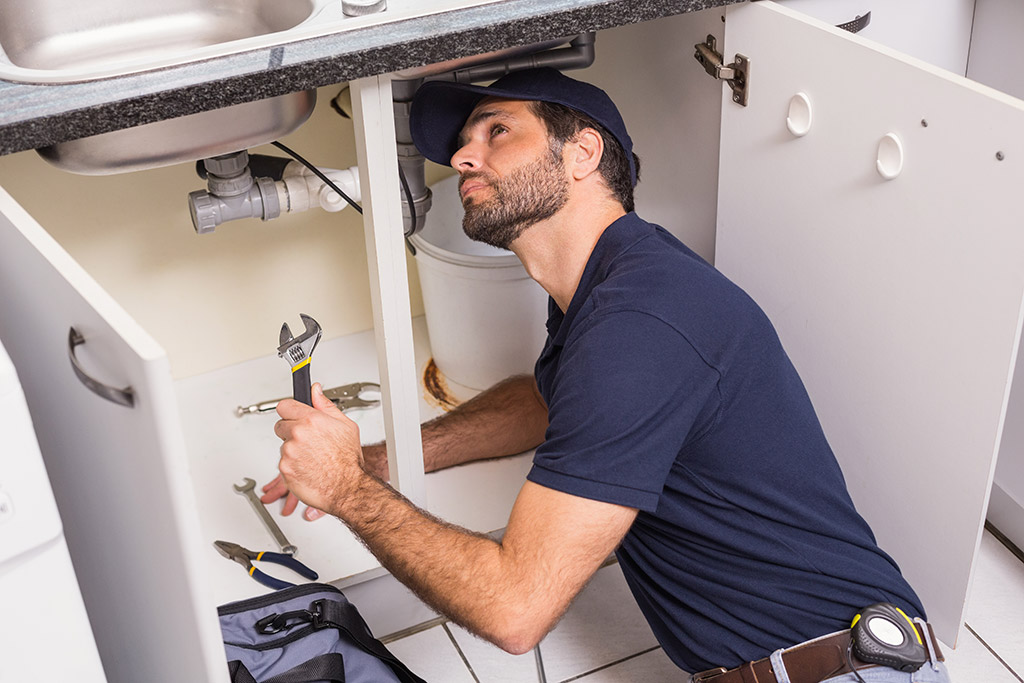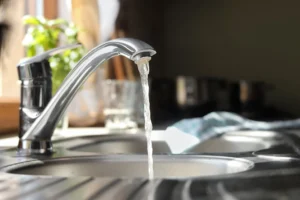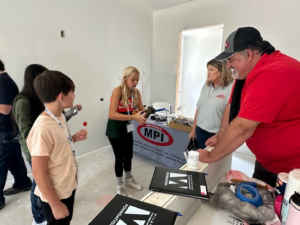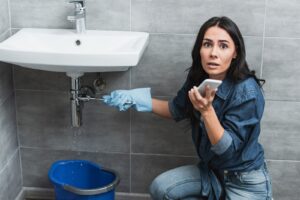Plumbing emergencies can strike at the most inconvenient times, often leading to costly repairs and major disruptions to your daily life. Whether it’s a burst pipe, a clogged drain, or a broken water heater, these issues can be stressful and expensive to fix. However, the good news is that most plumbing emergencies can be prevented with regular maintenance and smart practices. By taking a proactive approach, homeowners can save themselves from expensive repairs, reduce the chances of water damage, and ensure the longevity of their plumbing systems.
Regular Inspection and Maintenance
One of the most effective ways to prevent plumbing emergencies is by scheduling annual plumbing inspections. These inspections are crucial for identifying hidden issues before they become major problems. A professional plumber will check your system for signs of wear and tear, corrosion, leaks, and potential blockages that could lead to future issues.
Key things to look for during an inspection include:
- Leaky Faucets: Dripping faucets are more than just an annoyance—they can waste a significant amount of water over time, leading to higher utility bills.
- Clogged Drains: Slow-draining sinks or showers are often an early warning sign of a clog forming in your pipes. Regular maintenance helps prevent full blockages.
- Pipe Corrosion: Older pipes, especially those made of galvanized steel, can corrode and leak over time. Regular inspection can detect early signs of corrosion before a pipe bursts.
Milam Plumbing’s expert team can help homeowners ensure their plumbing systems are functioning properly through detailed inspections. Our trained technicians can identify potential issues, provide recommendations for repairs or replacements, and offer peace of mind knowing that your home is safe from unexpected plumbing failures.
Proper Use of Plumbing Systems
To ensure your plumbing system remains in good working order, it’s essential to use it properly and avoid habits that could lead to clogs, leaks, or other costly issues. Here are some tips to help homeowners maintain their plumbing systems:
1. Avoid Overloading the Plumbing System
Overloading your plumbing system is one of the quickest ways to create problems. Be mindful of what goes down your drains and toilets. For example:
- Proper Waste Disposal: Only dispose of human waste and toilet paper in the toilet. Avoid flushing items like paper towels, wipes (even “flushable” ones), and feminine hygiene products, as they can cause blockages in your pipes.
- Garbage Disposal: While garbage disposals can handle food scraps, it’s important not to overload them. Avoid disposing of hard items like bones, fibrous vegetables (e.g., celery), or large food scraps that can damage the disposal or clog the drain.
- Avoiding DIY Plumbing Fixes: While DIY plumbing fixes may seem like an easy solution, they can often make the problem worse. Incorrectly fixed pipes or improperly installed fixtures can result in leaks, corrosion, or even water damage to your home. Always call a professional plumber to fix any issues, no matter how small they seem.
2. Monitoring Water Pressure
Water pressure plays a significant role in the performance of your plumbing system. If the pressure is too high, it can strain your pipes, leading to leaks or bursts. Conversely, low water pressure can make tasks like showering or cleaning inefficient. Regularly monitor your home’s water pressure and if you notice fluctuations, have a professional plumber check for potential issues, such as pressure-reducing valve malfunctions or pipe blockages.
Drain Cleaning and Prevention
Keeping your drains clean and free of obstructions is key to preventing plumbing emergencies. Regular maintenance and preventive practices can keep your drains flowing smoothly and avoid the hassle of expensive repairs.
1. The Importance of Regular Drain Cleaning
While your drains may seem to work fine on a daily basis, small clogs can develop over time, leading to blockages that cause major backups. Regular drain cleaning can prevent these issues by removing grease, hair, soap scum, and other debris before they have a chance to build up and clog your pipes. Scheduling professional drain cleaning services can keep your plumbing in optimal condition.
2. Avoiding Grease and Large Food Particles in Kitchen Drains
One of the most common causes of clogged kitchen drains is grease buildup. When grease or cooking oil is poured down the drain, it hardens and forms blockages over time. Instead, dispose of grease in a container and throw it in the trash instead of down the drain. Also, large food particles should be scraped into the trash instead of being washed down the sink to prevent clogs.
3. Preventing Hair and Debris in Bathroom Drains
Hair, soap scum, and other bathroom debris can easily accumulate in your drains and cause clogs. Installing drain covers or strainers is an inexpensive yet effective way to catch hair and prevent it from going down the drain. Regularly clean these strainers to ensure they remain effective and maintain water flow. If you notice your bathroom drains are becoming slow, it’s a sign that they need to be cleaned.
By implementing these simple maintenance practices, you can extend the life of your plumbing system, reduce the need for costly repairs, and keep your home free of plumbing emergencies.
Protecting Pipes in Cold Weather
As temperatures drop in the winter months, frozen pipes become a significant concern for homeowners. Pipes exposed to cold air, particularly those in unheated areas like attics, basements, and crawl spaces, are more prone to freezing. Here are some essential tips to help protect your pipes during cold weather:
1. Insulate Vulnerable Pipes
Insulating your pipes is one of the most effective ways to prevent freezing. Pipe insulation sleeves, foam wraps, or heat tape can be wrapped around exposed pipes to provide an added layer of protection. Pay extra attention to areas like exterior walls, garages, or attics where pipes are more likely to be exposed to the cold.
2. Let Faucets Drip During Extreme Cold
If you anticipate extremely cold temperatures, it’s a good idea to let faucets drip slightly. The small movement of water reduces the likelihood of pipes freezing and helps relieve pressure that could cause a pipe to burst. Be particularly mindful of faucets located on exterior walls or those that are connected to vulnerable pipes.
3. Signs of Frozen Pipes and How to Respond
Frozen pipes often exhibit signs such as reduced water flow, unusual sounds when the water is turned on, or visibly frozen areas of the pipe. If you suspect a pipe is frozen, don’t wait for it to burst. First, turn off the water supply to the affected area to prevent flooding. Then, slowly thaw the pipe using a hairdryer, space heater, or warm towels. If you can’t thaw the pipe or are concerned about damage, contact a plumber immediately to avoid further issues.
Water Heater Maintenance
A properly maintained water heater ensures reliable hot water, prevents sudden breakdowns, and extends the unit’s lifespan. Regular care and attention to your water heater can help avoid costly repairs and ensure it operates efficiently.
1. Flushing and Inspecting the Water Heater
Regularly flushing your water heater is an essential part of maintenance. Over time, sediment can build up in the bottom of the tank, reducing efficiency and causing the heater to work harder, which can lead to premature failure. Flushing the tank once a year (or more frequently if you have hard water) helps remove this buildup and improves the heater’s efficiency.
In addition to flushing, it’s important to regularly inspect the water heater for signs of leaks, corrosion, or mineral deposits that could lead to bigger issues. Look for leaks around the base of the unit or water pooling on the floor and call a professional plumber if you notice any concerns.
2. Signs of Water Heater Issues
Some common signs that your water heater may be on the brink of failure include:
- Strange Noises: If you hear popping or cracking sounds coming from your water heater, it could be a sign of sediment buildup inside the tank. This can affect the heating process and lead to inefficiency or even system failure.
- Inconsistent Water Temperature: If your water temperature fluctuates or never seems to get hot enough, it could indicate a problem with the thermostat or heating elements.
- Leaks: Any visible leaks around the tank are a red flag, as they could indicate a crack in the tank or loose connections.
- Water discoloration: Brown or rusty water may indicate corrosion inside the tank or an issue with the anode rod.
3. Extending the Lifespan of Your Water Heater
To extend the life of your water heater and ensure it runs efficiently, consider the following tips:
- Adjust the thermostat: Set the temperature on your water heater to 120°F. This is the optimal temperature for safety and energy savings.
- Install a water softener: If you have hard water, a water softener can help prevent mineral buildup, which can extend the life of your water heater.
- Check the anode rod: The anode rod helps prevent corrosion in the tank. Make sure to check it annually and replace it if needed.
By following these maintenance steps, you can keep your water heater running smoothly and avoid unnecessary repairs or replacements, saving you time and money in the long run.
Install a Whole-Home Water Filtration System
A whole-home water filtration system provides a range of benefits that protect both your plumbing and your appliances. These systems ensure that the water flowing through your home is free from harmful chemicals, sediments, and minerals that can cause long-term damage.
1. Protecting Pipes and Appliances from Hard Water Damage
Hard water contains high levels of minerals like calcium and magnesium, which can lead to mineral buildup inside pipes, water heaters, and appliances like dishwashers and washing machines. Over time, this buildup can restrict water flow, reduce appliance efficiency, and even cause damage such as clogs, leaks, or malfunctions.
Installing a whole-home water filtration system can prevent this mineral buildup by removing impurities from your water before they reach your pipes and appliances. This helps to preserve the integrity of your plumbing system and extends the lifespan of appliances, reducing the need for costly repairs or replacements.
2. Preventing Build-Up in Pipes and Fixtures
A filtration system helps prevent the accumulation of scale and sediment in your plumbing. Over time, these deposits can cause pipes to corrode, resulting in leaks and expensive repairs. A filtration system eliminates these contaminants, which in turn helps maintain the flow of water and minimizes the risk of clogs or pipe damage. By keeping your water clean, you not only protect your plumbing but also improve the quality of water throughout your home.
3. Healthier Water for Your Family
In addition to protecting your plumbing, a whole-home water filtration system ensures that the water you and your family consume is cleaner and healthier. These systems remove chlorine, lead, and other harmful chemicals, providing you with safe drinking water and cleaner water for bathing, cooking, and cleaning.
Know the Location of Shut-Off Valves
One of the most crucial pieces of information for homeowners is knowing the location of the main water shut-off valve. In the event of a plumbing emergency, quick action can prevent extensive damage and expensive repairs.
1. How Knowing Your Shut-Off Valve Location Helps in Emergencies
When a pipe bursts or a major leak occurs, knowing where the main water shut-off valve is located allows you to act quickly and stop the flow of water before it causes widespread flooding or water damage. The faster you can shut off the water, the less damage will occur to your home, floors, furniture, and valuables.
The main shut-off valve is typically located near where the water line enters your home, often in basements, crawl spaces, or utility rooms. It’s important to locate this valve, ensure it’s easily accessible, and familiarize yourself with how to operate it.
2. Educating Your Family on Shut-Off Procedures
In addition to knowing where the shut-off valve is, it’s essential to educate everyone in your household on how to use it. During an emergency, every second counts, so having multiple people trained to quickly locate and turn off the valve can be crucial in minimizing damage.
Ensure that all family members are aware of the procedure and have practiced turning off the valve. You might also consider labeling the shut-off valve clearly to make it easier for everyone to find, even in stressful situations.
By taking these simple yet critical steps, you can significantly reduce the risk of severe water damage to your home and have peace of mind knowing that you’re prepared for any plumbing emergency.
When to Call a Professional Plumber
While there are many minor plumbing issues that homeowners can manage themselves, there are certain situations where calling a professional plumber is crucial. Understanding when to call a plumber can prevent further damage and save you from expensive repairs.
1. Plumbing Emergencies That Require Expert Intervention
Some plumbing issues go beyond simple DIY fixes. In cases like these, it’s important to reach out to a professional plumber who has the knowledge and tools to properly assess and resolve the situation. Here are a few examples of plumbing emergencies that require expert intervention:
- Burst Pipes: A burst pipe can flood your home and cause significant damage in a short amount of time. If you notice water flowing from a pipe, especially during cold weather, it’s important to turn off your main water supply and call a plumber immediately.
- Sewage Backups: A sewage backup is not only unsanitary but can lead to major health risks. If you notice sewage odors, backed-up drains, or unusual gurgling sounds in your pipes, it’s a sign that there’s a blockage or issue within your sewer system that needs immediate professional attention.
- Major Leaks: Small leaks can often be handled by homeowners, but larger, more persistent leaks—especially those behind walls or under floors—require professional expertise to locate and fix without causing further damage.
- Water Heater Issues: If your water heater is making strange noises, leaking, or not providing hot water, it may require repairs or even replacement. Water heater issues can be complex and should be addressed by a licensed plumber.
2. Why DIY Isn’t Always the Best Option
While some minor issues—such as clogged drains or leaky faucets—may seem simple enough to handle on your own, attempting more complicated repairs without proper training can cause further damage to your plumbing system. Additionally, without the right tools, DIY plumbing repairs can be time-consuming and ultimately more costly if not done correctly. A professional plumber has the experience to diagnose the problem quickly and fix it properly the first time.
In conclusion, preventative measures like regular inspections, proper maintenance, and smart practices are key to avoiding plumbing emergencies and saving money in the long run. By addressing small issues before they escalate, homeowners can ensure their plumbing systems remain in top condition.
At Milam Plumbing, we are here to help with all your plumbing needs, whether it’s routine maintenance or an emergency repair. Our team of experts is ready to offer high-quality, reliable service to ensure your home’s plumbing is functioning at its best.
Don’t wait for a plumbing emergency to catch you off guard. Contact Milam Plumbing today to schedule a consultation or a thorough inspection. You can reach us by phone or book online through our website. Let us keep your home’s plumbing in perfect shape, so you can have peace of mind all year round.


